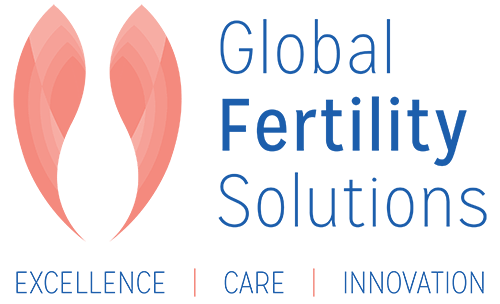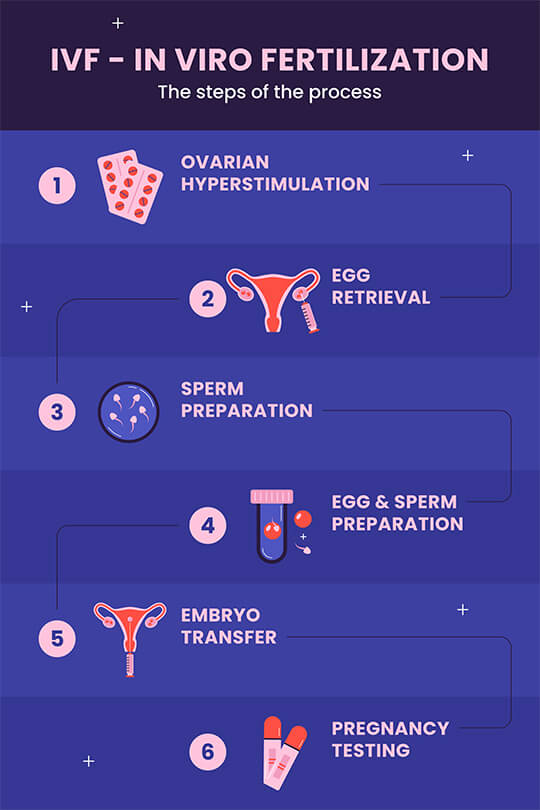In vitro fertilization (IVF)
What is IVF?
In vitro fertilization (IVF) is a highly effective assisted reproductive technology (ART) that helps individuals and couples overcome infertility and increase their chances of achieving pregnancy. That said, the process involves the fertilization of an egg with sperm outside the body in a laboratory setting, and then the resulting embryo is transferred to the woman’s uterus for implantation and development.
Who is in need of IVF?
IVF (in vitro fertilization) may be recommended for individuals or couples who face specific fertility challenges. While the decision to pursue IVF ultimately depends on individual circumstances and medical advice, here are some common situations in which IVF may be considered:
Patients with blocked or damaged fallopian tubes: In case you are coming with an issue related to blocked or damaged fallopian tubes, you can always opt for IVF to get the required treatment for the issues.
Ovulation disorders: IVF may also come good for people complaining about irregular or absent ovulation. Besides, if you are diagnosed with polycystic ovary syndrome (PCOS) or other hormonal imbalances, you can certainly try IVF to treat the medical condition.
Low sperm count or motility: IVF with intracytoplasmic sperm injection (ICSI) may be brought into use if you are a male with certain sperm motility or quantity issues. During ICSI, a single sperm is injected directly into each egg to trigger fertilization.
Unexplained infertility: In cases related to unexplained infertility, IVF can prove to be an effective option. As in IVF, fertility experts would be able to pick the most viable embryo in order to trigger fertilization.
Advanced maternal age: As a woman ages, her fertility declines, and the quality and quantity of her eggs diminish. This is where IVF can offer a viable option for women of advanced maternal age who are experiencing difficulties conceiving naturally.
Endometriosis: IVF can help individuals with endometriosis, a condition where the tissue lining the uterus grows outside of it. That said, the presence of endometriosis can interfere with fertility, and IVF bypasses this issue by directly placing embryos into the uterus.
Genetic disorders: IVF may also have opted for if a person doesn’t want to pass on certain genetic health issues to future generations. With the help of PGS and PGD, one can certainly diagnose the embryos developed out of their gametes before using them for conception.
Same-sex couples or individuals: IVF also comes as a godsend for all same-sex couples and individuals. While natural conception may not be a possibility there, IVf can help such couples to reach their parenthood goals.
Overcoming infertility: IVF is a valuable option for individuals and couples who have been unable to conceive naturally or through other fertility treatments. Besides, it can help overcome various causes of infertility, including fallopian tube damage or blockage, low sperm count or motility, ovulation disorders, endometriosis, or unexplained infertility.
Success rates: IVF offers higher success rates compared to other fertility treatments. That said, the success of IVF depends on various factors such as the woman’s age, overall health, the quality of embryos, and the expertise of the fertility clinic. Moreover, advanced techniques such as pre-implantation genetic testing (PGT) can also improve success rates by selecting embryos with the best genetic potential.
Multiple cycles and frozen embryo transfers: IVF allows for multiple cycles, increasing the chances of success over time. If the first cycle is unsuccessful or if additional embryos are available, frozen embryos can be used in subsequent cycles, reducing the need for ovarian stimulation and egg retrieval. Besides, this can save time, and cost, and minimize the physical burden on the woman.

Diagnostic benefits: IVF can provide diagnostic benefits by identifying underlying issues that may contribute to infertility. During the IVF process, doctors can evaluate the quality and fertilization potential of eggs and sperm. Additionally, if there are recurring implantation failures or recurrent pregnancy loss, genetic testing of embryos can be performed, providing valuable insights into potential genetic issues.
Treatment customization: IVF treatment can be tailored to meet the specific needs of each individual or couple. This includes adjusting the medication dosage, timing of embryo transfer, and employing additional techniques such as intra-cytoplasmic sperm injection (ICSI) or assisted hatching to address specific fertility concerns.
Donor options: IVF allows the use of donor eggs or sperm, providing an alternative for individuals or couples with severe infertility issues. Donor options can increase the chances of success in cases where the woman’s eggs are of poor quality or unavailable.
Family planning and genetic screening: IVF offers options for family planning and genetic screening. For example, embryos can be tested for specific genetic disorders or chromosomal abnormalities before implantation through PGT. Moreover, this allows couples with a higher risk of passing on genetic conditions to have healthier offspring.
Surrogacy: IVF is a crucial component of gestational surrogacy, where an embryo created through IVF is transferred to a surrogate mother who carries the pregnancy to term. On the other hand, Surrogacy allows individuals or couples who are unable to carry a pregnancy to have a biological child.





